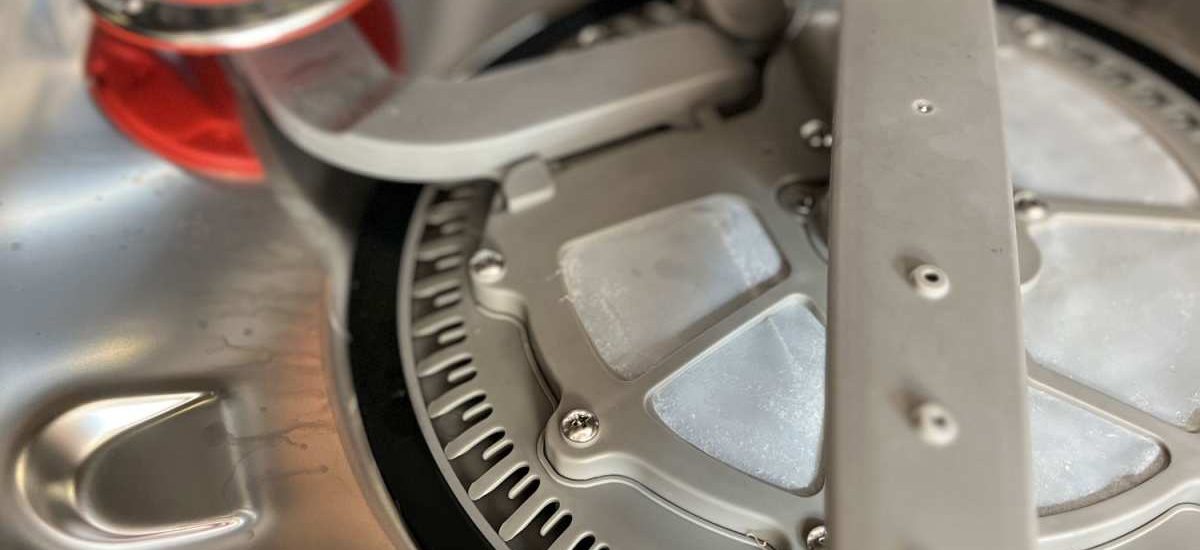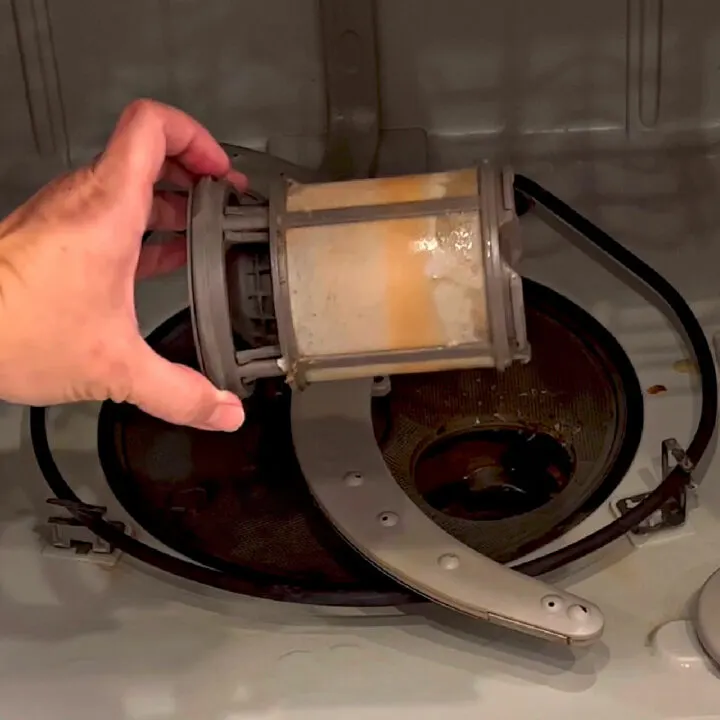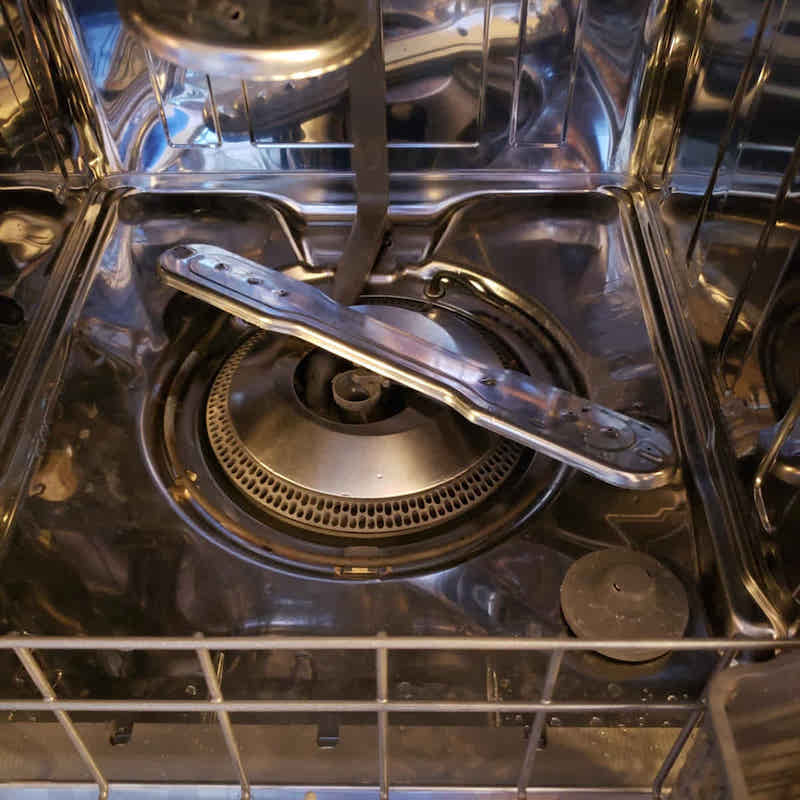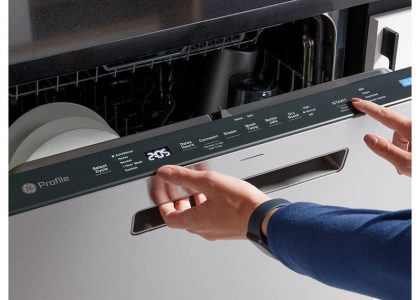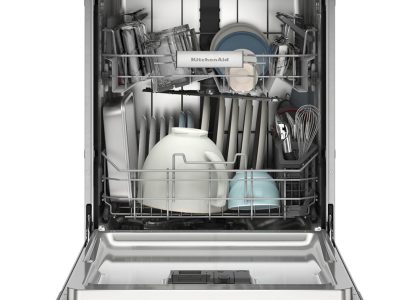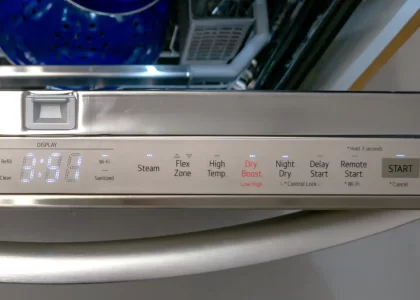Introduction to Dishwasher Filter Maintenance
How often to clean dishwasher filter? Your dishwasher works hard to keep your dishes clean. But it needs your help too. The dishwasher filter is a key player in this process. It catches food particles and prevents them from sticking to dishes during the wash cycle. Keeping this filter clean is essential for . Over time, food debris can accumulate in the filter, leading to potential problems. Regular maintenance prevents these issues and ensures your dishwasher runs smoothly. No matter the type of filter your dishwasher has, keeping it clean is a must. A quick check and clean-up can make a big difference in your dishwasher’s effectiveness. Let’s explore how to recognize when your filter needs a clean, the types of filters available, and how often you should perform maintenance.
Recognizing Signs Your Dishwasher Filter Needs Cleaning
Identifying when your dishwasher filter needs a thorough clean is crucial for maintaining its efficiency. Here are a few signs to help you determine the right time:
- Unpleasant Odors: If a foul smell lingers inside your dishwasher, it’s likely due to a dirty filter. This occurs when food particles decompose over time. Clean the filter to eliminate these odors.
- Poor Water Drainage: If water does not drain properly after a wash, the filter may be clogged with debris. This prevents water from flowing freely, signaling it’s time to clean the filter.
- Remnants on Dishes: Notice food particles or a filmy residue on your freshly washed dishes? This is a clear indicator that your dishwasher filter isn’t doing its job properly. A clean filter will ensure nothing but sparkling dishes.
- Visible Food Build-up: Check the filter for visible chunks of leftover food or grime. Regular inspections will help you spot when it’s time for a clean.
- Sprayer Arm Issues: If the dishwasher’s arms that spray water seem blocked or have reduced functionality, the likely culprit is a clogged filter.
By paying attention to these signs, you can keep your dishwasher in optimal condition and enhance its cleaning performance.
Types of Dishwasher Filters Explained
Your dishwasher’s filter can vary based on your model. There are mainly two types: manual and self-cleaning. Each plays a vital role in your appliance’s ability to function properly. Here’s what you need to know about them.
Manual Dishwasher Filters
Manual filters often have a mesh design. They trap food particles that cannot go down the drain. You need to clean these by hand. This keeps your dishwasher running smoothly and your dishes clean. Check and clean it at least once a month or more, depending on use.
Self-Cleaning Dishwasher Filters
Self-cleaning filters grind up food waste during the wash cycle. This means less hands-on cleaning for you. However, these filters may make more noise due to their grinding action. This type does not need regular manual cleaning.
Understanding what type of filter you have is crucial. This knowledge will influence how often to clean dishwasher filter components. Remember to consult your dishwasher’s manual if you’re unsure which type you have. Proper maintenance keeps your dishes spotless and your dishwasher in top shape.
Step-by-Step Guide to Cleaning Your Dishwasher Filter
A clean dishwasher filter keeps your machine working well and your dishes sparkling. But knowing exactly how to clean the filter is key. This step-by-step guide will walk you through the process, making it simple and hassle-free.
- Empty the Dishwasher: Begin by removing all dishes and the bottom rack to expose the filter.
- Locate the Filter: Find your dishwasher’s filter at the bottom of the machine. It usually looks like a cylindrical tube.
- Remove the Filter: Gently twist to unlock and lift out the filter. If there’s a flat filter beneath, lift that out too.
- Rinse the Filter: Run the filter under water to wash away loose debris. Check for trapped food bits.
- Soak If Needed: If the filter is very dirty, let it soak in hot, soapy water or a mix of white vinegar and warm water. This will help loosen grime.
- Scrub Gently: Use a soft brush or sponge with dish soap to scrub the filter. Be thorough but gentle to avoid damage.
- Rinse Again: After scrubbing, rinse the filter well to remove all soap and debris.
- Inspect and Repeat: If the filter still looks dirty, repeat the soaking and scrubbing steps until clean.
- Dry and Replace: Let the filter air dry then securely place it back in the dishwasher. Don’t forget to lock it into place.
- Run a Test Cycle: After reassembling, run a short wash cycle to ensure everything is working correctly. No dishes needed for this test.
Follow these steps regularly, and remember the frequency of cleaning depends on how often you use your dishwasher and whether your filter is manual or self-cleaning. A routine clean maintains your dishwasher’s efficiency and prevents problems down the line.
How Often Should You Clean Your Dishwasher Filter?
The frequency of cleaning your dishwasher filter depends on different factors. Usage is the key. Heavily used dishwashers need more frequent filter cleaning. Typically, for manual filters, you should aim to clean them at least once a month. If you use your dishwasher less often, a clean every two to three months may suffice.
However, some signs can prompt an immediate cleaning irrespective of the schedule. Strong odors, visible food remnants, and poor drainage indicate the need for a quick clean-up. In such cases, it’s better to clean the filter right away to restore efficiency.
For self-cleaning filters, maintenance is much sparser. They do not require monthly cleanings due to their design. They grind up the food waste and flush it away. But they are not entirely hands-off. It’s good to check them every six months to ensure they are functioning well.
Remember that the cleaner the filter, the better your dishwasher’s performance. Regular cleanings prevent larger issues and extend the lifespan of the appliance. They also assure you get that perfect, clean sparkle on your dishes every time.
In summary, to keep your dishwasher’s filter at its best:
- Manual filters: Clean monthly or more if needed.
- Self-cleaning filters: Check semi-annually.
- Stay alert: Look for signs of clogs or odors for an immediate clean.
Stick to these guidelines and adjust as necessary based on your observation and dishwasher usage. This ensures your dishwasher stays in top-notch condition.
Tips for Maintaining Dishwasher Filter Efficiency
To maintain your dishwasher filter effectively, follow these practical tips:
- Regular Checks: Frequently inspect your dishwasher filter, especially after heavy use. This helps catch any large debris before it causes clogs.
- Use Proper Detergents: Opt for quality dishwashing detergent. Poor-quality detergents may leave residues that can clog the filter over time.
- Pre-rinse Dishes: Although not mandatory, pre-rinsing dishes can reduce the workload on your filter by removing large food particles.
- Schedule Regular Cleanings: Set a reminder to clean your dishwasher filter regularly. Use the guidelines provided in the previous sections depending on your filter type. For manual filters, clean monthly. For self-cleaning filters, check them every six months.
- Soak Stubborn Grime: If your filter is particularly dirty, soak it in a solution of hot water and vinegar. This will help loosen the grime before scrubbing.
- Ensure Correct Reinstallation: After cleaning, make sure the filter is properly reinstalled. Incorrect installation can lead to poor dishwasher performance or damage.
- Avoid Non-Dishwasher Safe Items: Some cookware and dishes may shed parts or coatings that could clog your filter. Stick to dishwasher-safe items only.
By implementing these tips, you can ensure that your dishwasher operates efficiently and continues to produce spotless dishes, prolonging the lifespan of both your appliance and its filter.
Common Issues from Neglected Dishwasher Filters
Neglecting dishwasher filter maintenance can lead to several common issues that affect both your dishwasher’s functionality and the cleanliness of your dishes. Recognizing these issues early can prevent more severe problems and maintain optimal performance. Here are some of the most frequent problems you might encounter due to a neglected filter:
- Reduced Cleaning Efficiency: A clogged filter can hinder water flow. This results in less effective rinsing and washing, leaving dishes unclean.
- Unpleasant Odors: Old food trapped in filters decomposes, causing foul smells to emanate from your dishwasher.
- Increased Maintenance Costs: Clogged filters force the dishwasher to work harder. This can wear out parts faster and lead to higher repair expenses.
- Water Drainage Problems: A dirty filter might block the drainage system. This leads to standing water, which can become a breeding ground for mold and bacteria.
- Dish Damage: Stuck food particles may get tossed around during a wash cycle, potentially scratching or breaking dishes.
Addressing filter cleanliness promptly ensures your dishwasher operates efficiently, keeping your kitchenware in pristine condition. Always remember to check and clean your filter regularly to avoid these common issues.
Conclusion: Benefits of Regular Dishwasher Filter Maintenance
Maintaining your dishwasher filter regularly has several benefits. Let’s sum them up to wrap up this comprehensive guide. First, consistent filter cleaning means clearer, shinier dishes. You won’t find food bits or filmy residue after a cycle with a clean filter. Second, it reduces unpleasant odors. Food doesn’t get the chance to decompose, so your kitchen stays fresh. Third, it saves money on repairs. Keeping the filter unclogged helps avoid wear and tear on your dishwasher’s parts. Plus, a well-maintained dishwasher is more efficient, using less water and energy. Lastly, regular maintenance prevents drainage issues and the growth of bacteria. This leads to a healthier, more hygienic kitchen environment. How often to clean dishwasher filter? Stick to monthly cleanings for manual filters and semi-annual checks for self-cleaning ones. Watch for clogging signs and act fast to keep up your dishwasher’s health. By following these simple steps, your dishwasher will serve you well for years.

